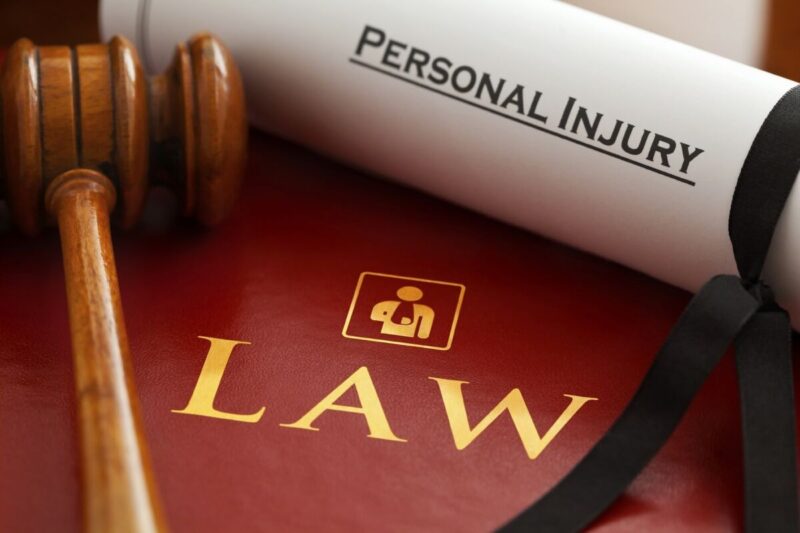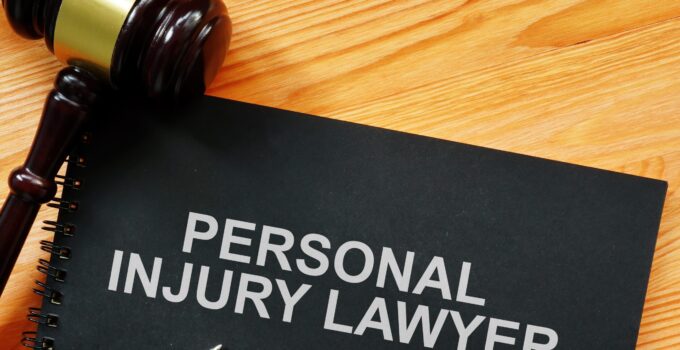When you’ve been injured due to someone else’s negligence, finding the right legal representation is crucial. Navigating the complexities of personal injury law can be daunting, but with the right guidance, you can secure the compensation you deserve.
How to choose a personal injury lawyer
Choosing a lawyer who understands your needs and has a proven track record in handling personal injury cases is vital. This article will guide you through the process of selecting the best legal professional for your case, ensuring you receive the justice you deserve.
Key Takeaways
- Understanding the importance of selecting the right personal injury lawyer
- Key factors to consider when choosing a lawyer for your personal injury case
- How to evaluate a lawyer’s experience and expertise in personal injury law
- The significance of a lawyer’s track record in achieving successful outcomes
- Tips for ensuring a lawyer is the right fit for your specific needs
Understanding Personal Injury Law and When You Need Legal Help

Source: rbhf.ca
If you’ve been injured due to someone else’s negligence, understanding your legal rights is the first step towards recovery. Personal injury law is a complex field that encompasses various types of cases, all of which involve seeking compensation for injuries or damages suffered says attorneys at Law Offices of Gerald J. Noonan.
Personal injury law is designed to protect individuals who have been harmed by others’ actions or omissions. It covers a wide range of incidents, from car accidents and slip-and-fall injuries to medical malpractice and product liability.
Types of Personal Injury Cases
Personal injury cases can vary significantly in nature and complexity. Some common types include:
- Motor vehicle accidents
- Slip, trip, and fall incidents
- Medical malpractice
- Product liability claims
- Workplace accidents
| Type of Case | Description | Common Causes |
| Motor Vehicle Accidents | Injuries from car, truck, or motorcycle crashes | Distracted driving, speeding, drunk driving |
| Slip, Trip, and Fall | Injuries from slipping or tripping on someone else’s property | Wet floors, uneven surfaces, poor lighting |
| Medical Malpractice | Negligence by healthcare professionals | Incorrect diagnosis, surgical errors, improper treatment |
Signs You Need Professional Legal Representation
Not everyone who is injured needs a lawyer, but certain situations warrant professional legal help. If you’re unsure about the severity of your injuries, the cause of the accident, or how to navigate the legal system, it’s time to consult with a personal injury lawyer.
Key indicators that you need legal representation include: severe injuries with significant medical bills, disputes over fault, or insurance companies offering low settlements.
Qualifications and Credentials to Look For

Source: stephenslaw.com
Understanding the qualifications and credentials of a personal injury lawyer is essential for making an informed decision. When you’ve been injured due to someone else’s negligence, hiring a lawyer with the right background and expertise can significantly impact the outcome of your case.
Education and Bar Certification
A personal injury lawyer’s educational background and bar certification are fundamental indicators of their competence. Look for a lawyer who has graduated from an accredited law school and is certified by the state bar association. This ensures they have met the necessary standards to practice law in your state.
- Check if the lawyer is a member of the state bar association.
- Verify their law degree from an accredited institution.
Specialized Training and Certifications
Specialized training and certifications in personal injury law can further demonstrate a lawyer’s commitment to their field. Certifications from reputable organizations can indicate a higher level of expertise. Some lawyers may also participate in ongoing education to stay updated on the latest laws and practices.
Professional Association Memberships
Membership in professional associations, such as the American Association for Justice or the National Trial Lawyers, can be a positive indicator. These memberships often require lawyers to adhere to certain standards and participate in continuing legal education, ensuring they remain knowledgeable about current legal developments.
Experience Matters: Evaluating a Lawyer’s Track Record

Source: bblawgroupllp.com
In the realm of personal injury law, a lawyer’s experience and track record are paramount to achieving a favorable outcome. When evaluating potential lawyers, it’s crucial to assess their background in handling cases similar to yours.
Case History and Success Rates
A key aspect of a lawyer’s track record is their case history, which includes the types of cases they’ve handled and their success rates. Look for a lawyer with a proven history of winning cases or negotiating favorable settlements. A high success rate is a good indicator of a lawyer’s competence and ability to navigate complex legal issues.
For instance, a lawyer with a strong track record in personal injury cases will be well-versed in dealing with insurance companies, medical professionals, and other stakeholders to build a strong case.
Trial Experience vs. Settlement Experience
It’s also important to differentiate between a lawyer’s trial experience and settlement experience. While many personal injury cases are settled out of court, having a lawyer with trial experience can be a significant advantage. This is because the threat of going to trial can be a powerful bargaining chip in settlement negotiations.
A lawyer who is comfortable in the courtroom and has a history of successful trials can provide an added layer of security for your case, ensuring that you’re represented effectively regardless of whether your case settles or goes to trial.
Experience with Your Specific Type of Injury
Furthermore, consider a lawyer’s experience with cases involving your specific type of injury.
“A lawyer who has handled cases similar to yours will be more familiar with the nuances and challenges associated with your particular situation.”
This specialized knowledge can be invaluable in building a strong case and achieving the best possible outcome.
By focusing on a lawyer’s experience and track record, you can make a more informed decision about who to trust with your personal injury case.
How to Choose a Personal Injury Lawyer: Step-by-Step Process

Source: hsklaw.ca
To navigate the complex process of choosing a personal injury lawyer, it’s essential to follow a systematic approach. This ensures that you find an attorney who is not only qualified but also a good fit for your specific needs.
Creating a Shortlist of Potential Attorneys
The first step in choosing a personal injury lawyer is to create a shortlist of potential attorneys. This involves asking for referrals from friends, family, or other lawyers, and checking online directories or professional associations like the American Bar Association.
It’s also beneficial to check online reviews and ratings to gauge the reputation of potential lawyers. Look for attorneys with a strong track record in personal injury law.
Conducting Initial Research
Once you have a list of potential lawyers, conduct initial research to narrow down your options. Visit their websites to learn about their practice areas, experience, and credentials.
You can also check if they have any disciplinary actions against them through your state’s bar association. This step helps you eliminate lawyers who are not a good fit.
Edit
Delete
Scheduling and Preparing for Consultations
After narrowing down your list, schedule consultations with the remaining lawyers. Most personal injury lawyers offer free initial consultations.
Prepare for these consultations by gathering all relevant documents related to your case and making a list of questions to ask. This will help you make the most of your meeting.
Evaluating Multiple Attorneys Before Deciding
After consulting with multiple attorneys, evaluate their responses, experience, and communication style. Compare their approaches to your case and their proposed strategies.
| Criteria | Lawyer 1 | Lawyer 2 | Lawyer 3 |
| Experience in Personal Injury Law | 10 years | 15 years | 8 years |
| Success Rate | 80% | 90% | 75% |
| Communication Style | Responsive | Very Responsive | Average |
By following these steps, you can make an informed decision when choosing a personal injury lawyer. Remember, the right lawyer can significantly impact the outcome of your case.
Evaluating Communication Style and Availability

Source: florinroebig.com
Effective communication is the cornerstone of a successful attorney-client relationship. When dealing with a personal injury case, it’s crucial that your lawyer can communicate complex legal concepts clearly and is available to address your concerns in a timely manner.
Responsiveness and Accessibility are key factors to consider. You want a lawyer who is responsive to your calls and emails, and who is accessible when you need them. A lawyer who is difficult to reach or slow to respond can add unnecessary stress to an already challenging situation.
Responsiveness and Accessibility
A responsive lawyer ensures that you are kept informed throughout the legal process. Look for a lawyer who has a reputation for being accessible and responsive to their clients’ needs. This can be gauged through client testimonials or reviews.
- How quickly do they respond to your initial inquiry?
- Are they available to meet or talk at times that are convenient for you?
Clear Communication of Legal Concepts
It’s essential that your lawyer can explain legal concepts in a way that’s easy to understand. Avoid lawyers who use jargon without explaining it. Clear communication helps ensure you’re making informed decisions about your case.
“A good lawyer should be able to explain the law in plain English, without dumbing it down.”
Who Will Actually Handle Your Case

Source: guerralawgroup.com
Sometimes, the lawyer you initially meet with may not be the one handling your case. Find out if the firm uses junior attorneys or paralegals for certain tasks and how this might impact your case. Understanding who will be handling your case and their level of experience is vital.
By carefully evaluating a lawyer’s communication style and availability, you can make a more informed decision about who will represent you in your personal injury case.
Understanding Fee Structures and Payment Terms
One of the key considerations when selecting a personal injury lawyer is understanding their fee structures and payment terms. This knowledge can significantly impact your financial planning and decision-making process.
Personal injury lawyers typically use one of several fee structures, with the most common being the contingency fee arrangement. This arrangement means that the lawyer’s fee is contingent upon the outcome of your case.
Contingency Fee Arrangements
A contingency fee arrangement means that you pay nothing upfront to your lawyer. Instead, they receive a percentage of the compensation awarded to you if they win your case. This percentage can vary between lawyers and firms.
Typical Contingency Fee Percentages:
| Case Outcome | Typical Contingency Fee |
| Settlement | 33.33% |
| Trial | 40% |
Additional Costs and Expenses
Beyond the contingency fee, there may be additional costs associated with pursuing your case. These can include filing fees, expert witness fees, and costs for obtaining medical records.
It’s essential to understand what costs you’ll be responsible for and how they will be handled by your lawyer.
Fee Comparison Between Attorneys
When comparing lawyers, it’s not just about the contingency fee percentage. Consider the overall value they bring to your case, including their experience and track record.
For instance, a lawyer with a higher contingency fee but a significantly higher success rate might be more cost-effective in the long run.
Understanding the fee structures and payment terms of personal injury lawyers is crucial for making an informed decision. By considering both the contingency fee arrangement and additional costs, you can better navigate the process and choose a lawyer who aligns with your financial situation and legal needs.
Essential Questions to Ask During Your Consultation

The initial consultation is an opportunity not only to assess the lawyer’s qualifications but also to ask vital questions that can impact the outcome of your case. This meeting is crucial for understanding how your case will be handled and what you can expect from the legal process.
Case Assessment Questions
To gauge the lawyer’s approach to your case, ask questions like: “How do you assess the strength of my case?” and “What are the potential challenges you foresee?” Understanding their initial assessment can provide insights into their experience and expertise.
Additionally, inquire about their experience with cases similar to yours: “Have you handled cases like mine before?” and “What were the outcomes?” This information can help you understand their capability in handling your specific situation.
Process and Timeline Questions
It’s essential to understand the lawyer’s process and the timeline they anticipate for your case. Ask: “What are the next steps in handling my case?” and “How long do you expect the process to take?” Knowing what to expect can help manage your expectations and reduce anxiety.
Also, inquire about their communication style: “How will you keep me updated on the progress of my case?” and “How quickly will you respond to my inquiries?” Clear communication is key to a smooth lawyer-client relationship.
Fee and Payment Questions
Understanding the fee structure is vital. Ask: “What is your fee arrangement?” and “Are there any additional costs I should be aware of?” Clarifying these details upfront can prevent misunderstandings later on.
It’s also wise to ask: “How are costs and expenses handled in my case?” This can give you a comprehensive view of the financial aspects of hiring the lawyer.
By asking these essential questions during your consultation, you can make a more informed decision about whether the lawyer is the right fit for your needs.
Red Flags to Watch Out For When Choosing an Attorney

Source: davidinjurylawyer.com
Choosing a lawyer who can effectively represent your interests is vital, and there are certain red flags that should raise your concern. When searching for a personal injury attorney, being aware of these warning signs can save you time, money, and stress in the long run.
Unrealistic Promises or Guarantees
One major red flag is when a lawyer makes unrealistic promises or guarantees about the outcome of your case. No lawyer can predict the future with certainty, and such claims may indicate a lack of integrity or a scheme to gain your trust. Legitimate attorneys will provide a realistic assessment based on their experience and the specifics of your case.
Pressure Tactics and Solicitation
Be wary of lawyers who use pressure tactics or aggressive solicitation methods. A reputable attorney will respect your decision-making process and not rush you into hiring them. If you feel pressured or harassed, it’s a sign that the lawyer is more interested in closing the deal than in serving your best interests.
Lack of Transparency About Fees or Process
A lack of transparency regarding fees, the legal process, or communication channels is another significant red flag. Your lawyer should be clear about their fee structure, how they will handle your case, and how you can reach them. If they seem evasive or unclear, it may indicate a lack of professionalism or even dishonesty.
By being aware of these red flags, you can make a more informed decision when choosing a personal injury lawyer. Remember, the right attorney will be transparent, honest, and committed to representing your best interests.
- Be cautious of unrealistic promises.
- Avoid lawyers who use pressure tactics.
- Ensure transparency about fees and the legal process.
Conclusion: Making Your Final Decision

Source: hilljustice.com
Choosing a personal injury lawyer is a crucial step in your journey to seek justice and compensation for your injuries. After evaluating various factors, including a lawyer’s qualifications, experience, and communication style, it’s time to make a final decision.
When making a final decision, consider how well each lawyer understood your case and their proposed strategy for handling it. Reflect on their responsiveness, transparency about fees, and their ability to explain complex legal concepts in a clear manner.
Ultimately, the right personal injury lawyer will not only have the necessary expertise but also make you feel confident and supported throughout the legal process. By carefully weighing your options and considering the factors outlined, you can make an informed decision that best serves your needs.
By doing so, you’ll be well on your way to choosing a personal injury lawyer who can effectively represent you and help you achieve the best possible outcome in your case.
FAQ
What is a personal injury lawyer?
A personal injury lawyer is a legal professional who specializes in helping individuals who have been injured due to the negligence or wrongdoing of others, seeking compensation for their losses.
How do I know if I need a personal injury lawyer?
You may need a personal injury lawyer if you’ve been injured in an accident, such as a car accident, slip and fall, or medical malpractice, and are seeking compensation for your injuries, medical expenses, and other related costs.
What should I look for when choosing a personal injury lawyer?

Source: trantololaw.com
When choosing a personal injury lawyer, consider their experience, qualifications, and track record of success in handling cases similar to yours, as well as their communication style and fee structure.
What is a contingency fee arrangement?
A contingency fee arrangement is a payment structure where the lawyer’s fee is a percentage of the compensation awarded to you, typically ranging from 33% to 40% of the total recovery.
How long does a personal injury case typically take to resolve?
The length of time it takes to resolve a personal injury case can vary significantly, depending on the complexity of the case, the severity of the injuries, and the willingness of the parties to settle or go to trial.
Can I switch lawyers if I’m not satisfied with my current representation?
Yes, you can switch lawyers if you’re not satisfied with your current representation, but it’s essential to understand the potential implications, such as additional costs or delays, and to carefully evaluate your new lawyer’s qualifications and experience.
What are some common red flags to watch out for when choosing a personal injury lawyer?
Be cautious of lawyers who make unrealistic promises or guarantees, use pressure tactics, or lack transparency about their fees or the legal process, as these can be indicative of untrustworthy or unqualified representation.
How do I prepare for a consultation with a personal injury lawyer?
To prepare for a consultation, gather relevant documents, such as medical records and accident reports, and be prepared to discuss your case, including the circumstances surrounding your injury and your goals for seeking compensation.
What questions should I ask during a consultation with a personal injury lawyer?
During a consultation, ask questions about the lawyer’s experience, their approach to handling your case, their fee structure, and their assessment of your case’s potential outcome to help you make an informed decision.




